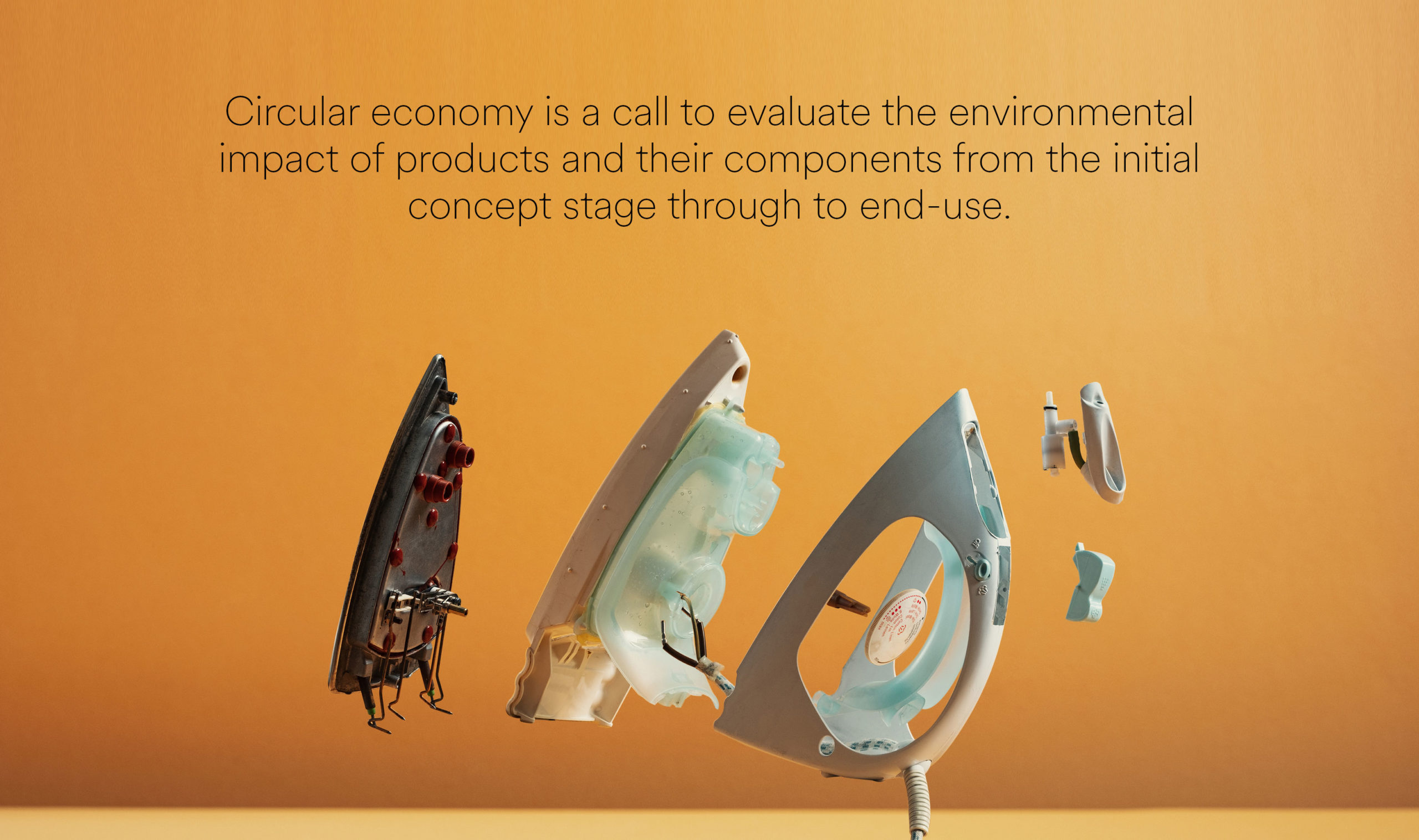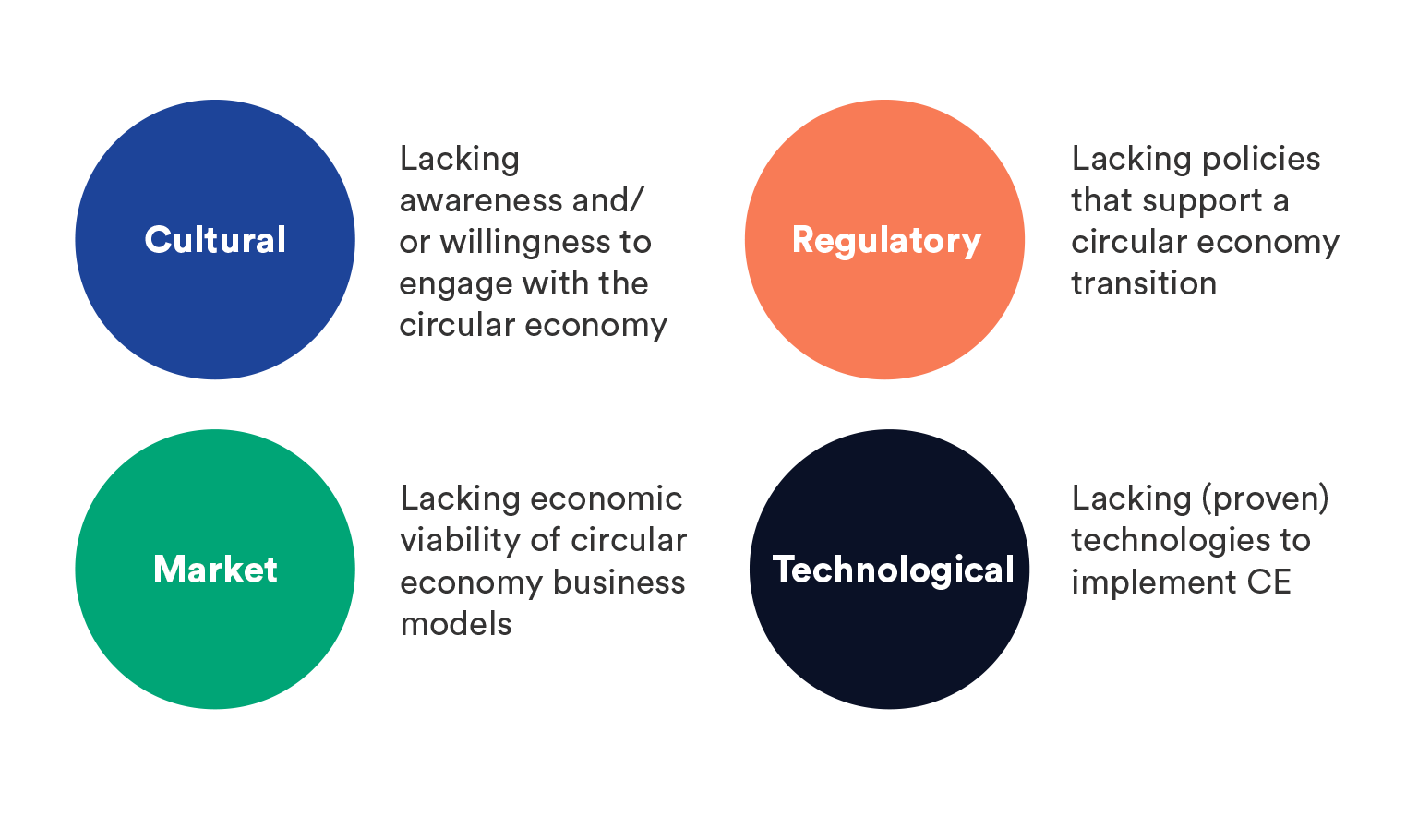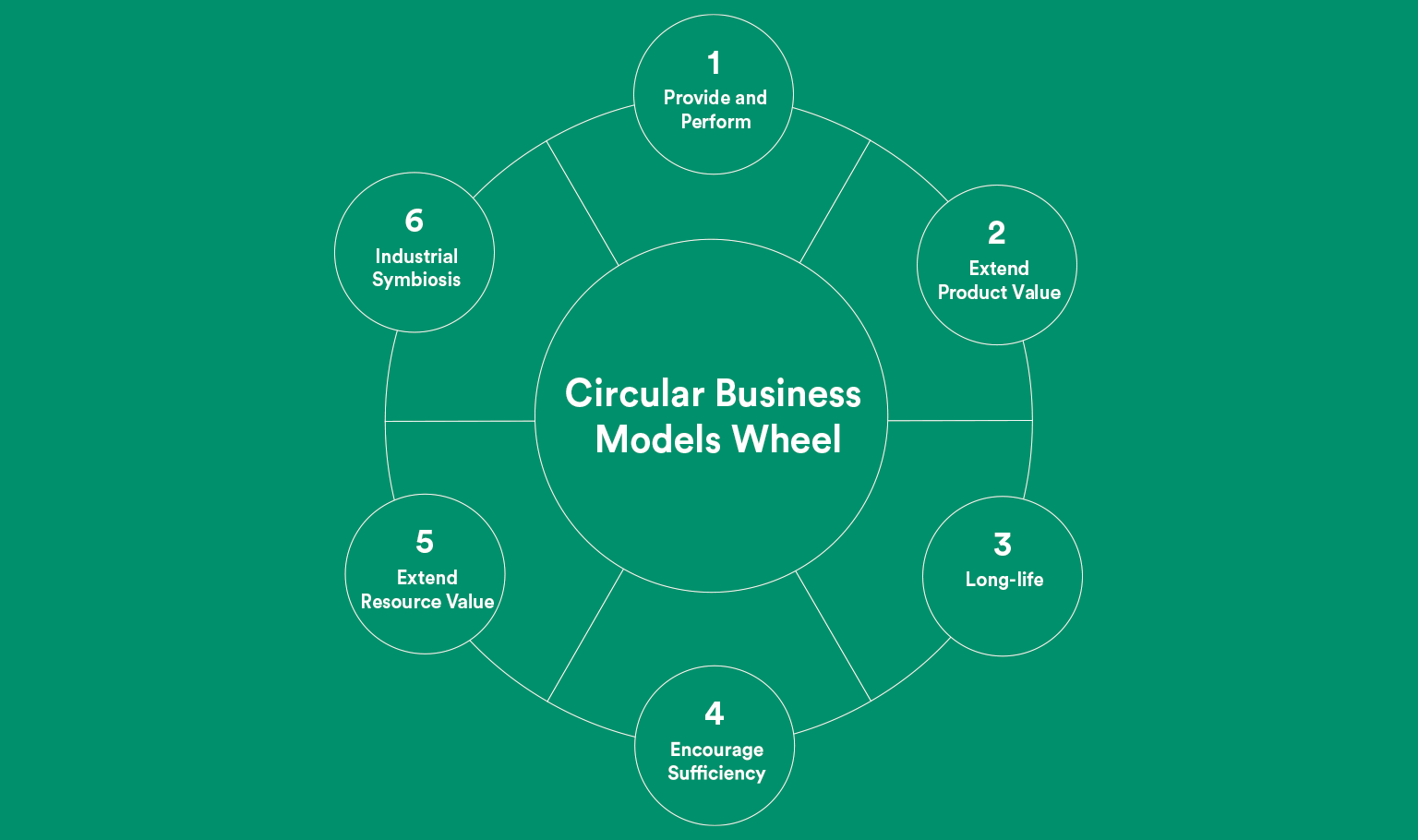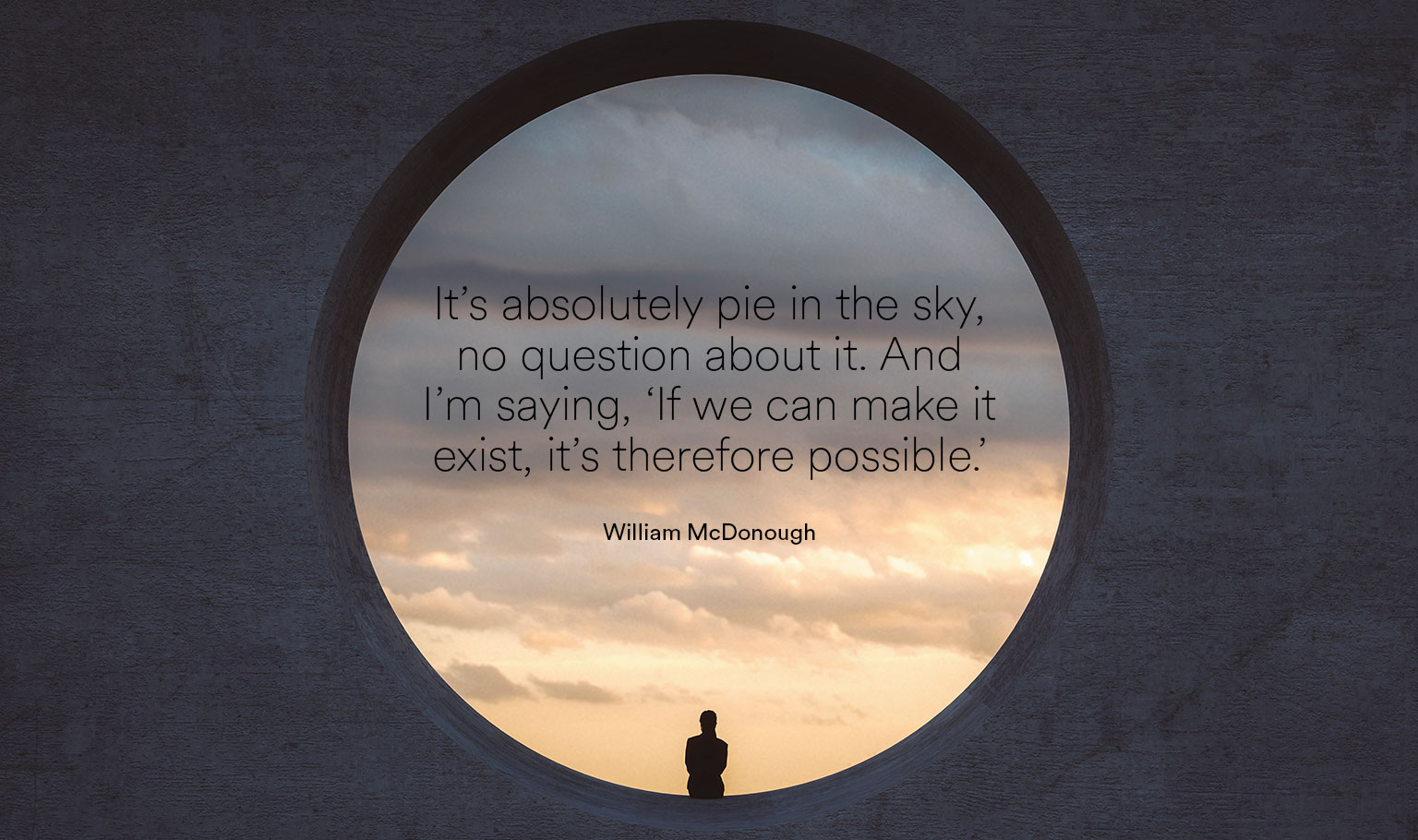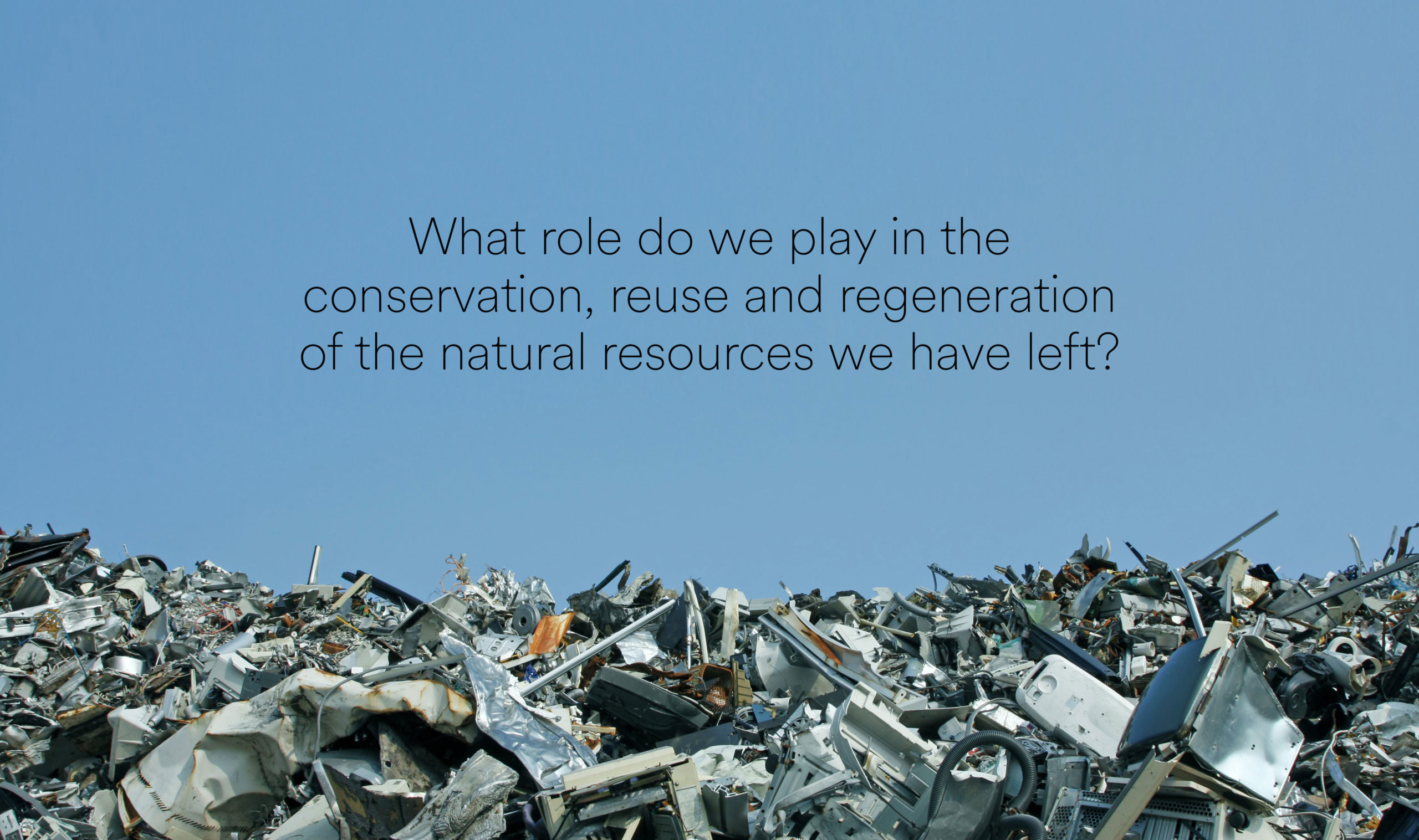Guía

DESCARGAR AHORA
Guía de la economía circular
¿Qué es y cómo funciona?
Cómo pasar a una economía circular
Avanzar hacia una economía circular no es una tarea sencilla, y es probable que se necesiten muchos años para lograr una verdadera circularidad. Esto se debe a que tanto las empresas como los consumidores deben trabajar juntos para crear un sistema que mantenga los materiales en el bucle. Esto significa que las empresas deben trabajar con otras empresas para encontrar nuevos hogares para los productos y materiales de desecho, mientras que los consumidores deben seguir reduciendo, reutilizando y reciclando, al tiempo que exigen una mayor circularidad en los productos y servicios.
Cómo medir la economía circular
La medida de una economía verdaderamente circular es aquella que genera cero residuos. Sin embargo, la realidad es que es poco probable que se alcance este objetivo, ya que es probable que siempre haya algún nivel de residuos. Sin embargo, medir el progreso de una economía circular puede hacerse por etapas, con empresas que miden su propia circularidad, que luego puede alimentar el sistema más amplio. La Fundación Ellen Macarthur es una organización que lo está haciendo, aunque RTS también puede ayudar a su empresa a realizar un seguimiento de sus métricas.
Por qué la economía circular es sostenible
Una economía circular se considera más sostenible, ya que su objetivo es producir cero residuos, reduciendo, reutilizando y reciclando todo tipo de materiales y recursos para garantizar que se mantienen en el circuito. Sin embargo, ahora muchas personas también creen que una economía circular puede ser más sostenible tanto financiera como medioambientalmente, con beneficios que también ayudan a construir sociedades más sostenibles.
¿Puede la economía circular convertir la basura en algo obsoleto?
En teoría, la economía circular está diseñada para reducir nuestra basura por completo. Sin embargo, la realidad es que reducir los residuos al mínimo es un resultado más probable. Dicho esto, a medida que las tecnologías circulares, los materiales y los recursos renovables se desarrollen en el futuro, es posible que la basura sea cosa del pasado.
Qué es la economía circular en la gestión de residuos
La gestión eficaz de los residuos es una pieza fundamental del rompecabezas de la economía circular, no solo como forma de desviar materiales y recursos de los vertederos o la incineración, sino también para ayudar a guiar a las empresas y los consumidores en la reducción, la reutilización y el reciclaje. Las empresas de gestión de residuos con más visión de futuro de la actualidad también tienen un papel muy importante que desempeñar en la medición de los parámetros de la economía circular y la consiguiente transparencia de los datos.
Cómo hacer que las ciudades sean más sostenibles
La economía circular es una de las formas de hacer más sostenibles las ciudades. Esto se debe a que los tres principios fundamentales -reducir, reutilizar y reciclar- pretenden, en primer lugar, minimizar la cantidad de residuos que generamos; a continuación, utilizar cualquier residuo que generemos en nuevos productos o procesos; y, por último, reciclar cualquier residuo restante para extraer la máxima utilidad. Esto significa que van a parar menos residuos a vertederos o incineradoras y que los recursos se mantienen durante más tiempo.
¿Cuáles son los tres principios fundamentales de la economía circular?
Los tres principios fundamentales de la economía circular son REDUCIR, REUTILIZAR y RECICLAR, en ese orden. Sin embargo, otros subprincipios, como renovar y reparar, junto con el uso de energías renovables, también son componentes clave de un sistema que es restaurador y regenerativo por diseño, un sistema que pretende replicar el funcionamiento de la naturaleza y rediseñar todo nuestro sistema industrial.
¿Cómo afecta la economía circular a la economía?
Aunque mucha gente sigue teniendo la idea errónea de que la sostenibilidad es cara, hoy en día existe la creencia generalizada de que la economía circular contribuirá a impulsar la economía mundial. En realidad, los residuos son caros: utilizan más recursos de los necesarios y deben tratarse de forma segura. Una economía circular valoraría los residuos como recursos en sí mismos y reduciría la necesidad de extraer constantemente más de la tierra. Además, teniendo en cuenta el impacto financiero del cambio climático en la economía mundial, una economía circular puede ayudar a mitigar los costes futuros.
¿Cómo aborda la economía circular el cambio climático?
La economía circular intenta hacer frente al cambio climático con cambios integrales en la economía de línea actual. Algunas de las formas más obvias de hacerlo son el cambio a fuentes de energía renovables, la eliminación progresiva de los plásticos de un solo uso y otros materiales derivados del petróleo, la prevención de la incineración de materiales de desecho y la reducción de residuos al mínimo absoluto para ahorrar recursos preciosos que, de otro modo, podrían extraerse de forma destructiva.
¿Qué es lo contrario de una economía circular?
Lo contrario de una economía circular es nuestra actual economía lineal, un sistema que "toma, fabrica y desperdicia", en lugar de reducir, reutilizar y reciclar. La economía lineal es derrochadora por diseño y se basa en sistemas y procesos activamente destructivos para el planeta. La economía circular, en cambio, pretende restaurar y regenerar el planeta mediante la reestructuración total de la economía industrial.

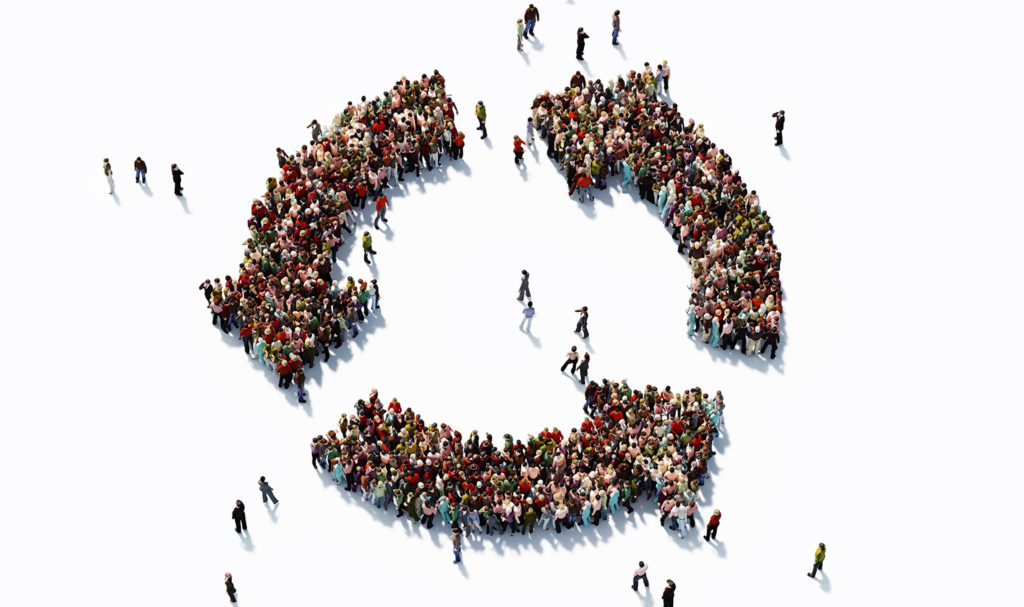

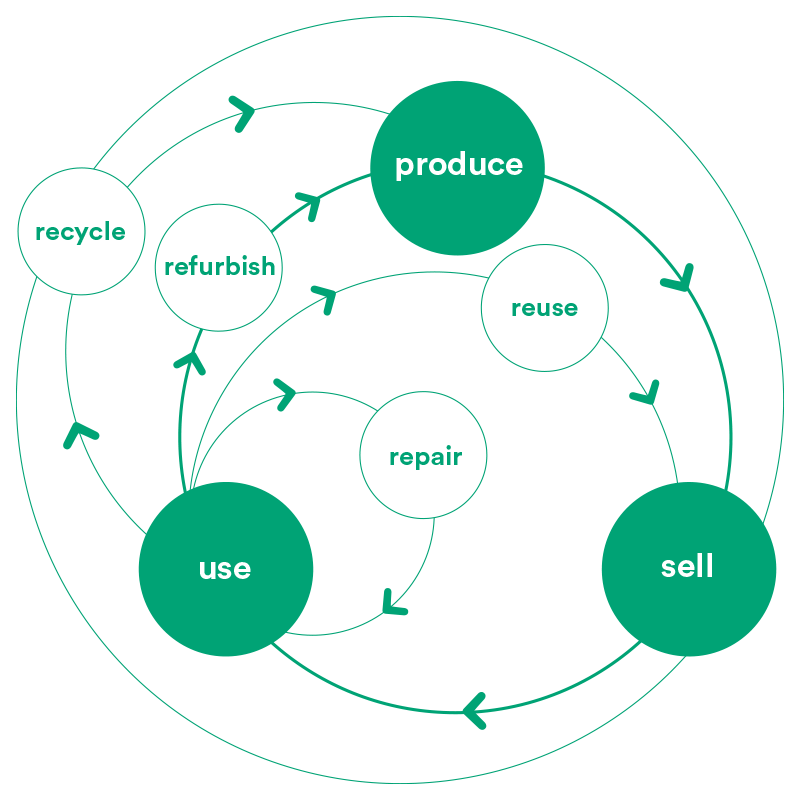
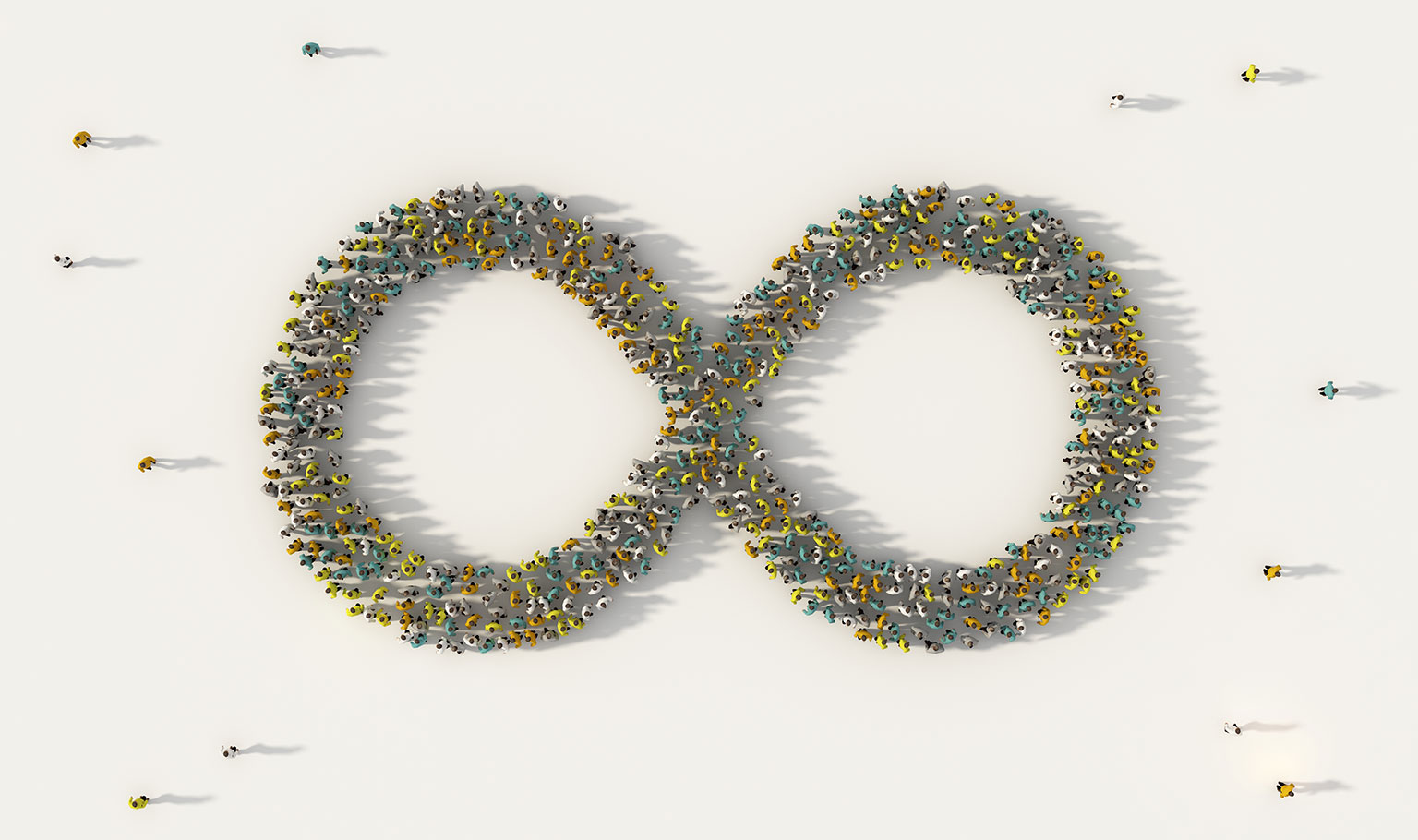
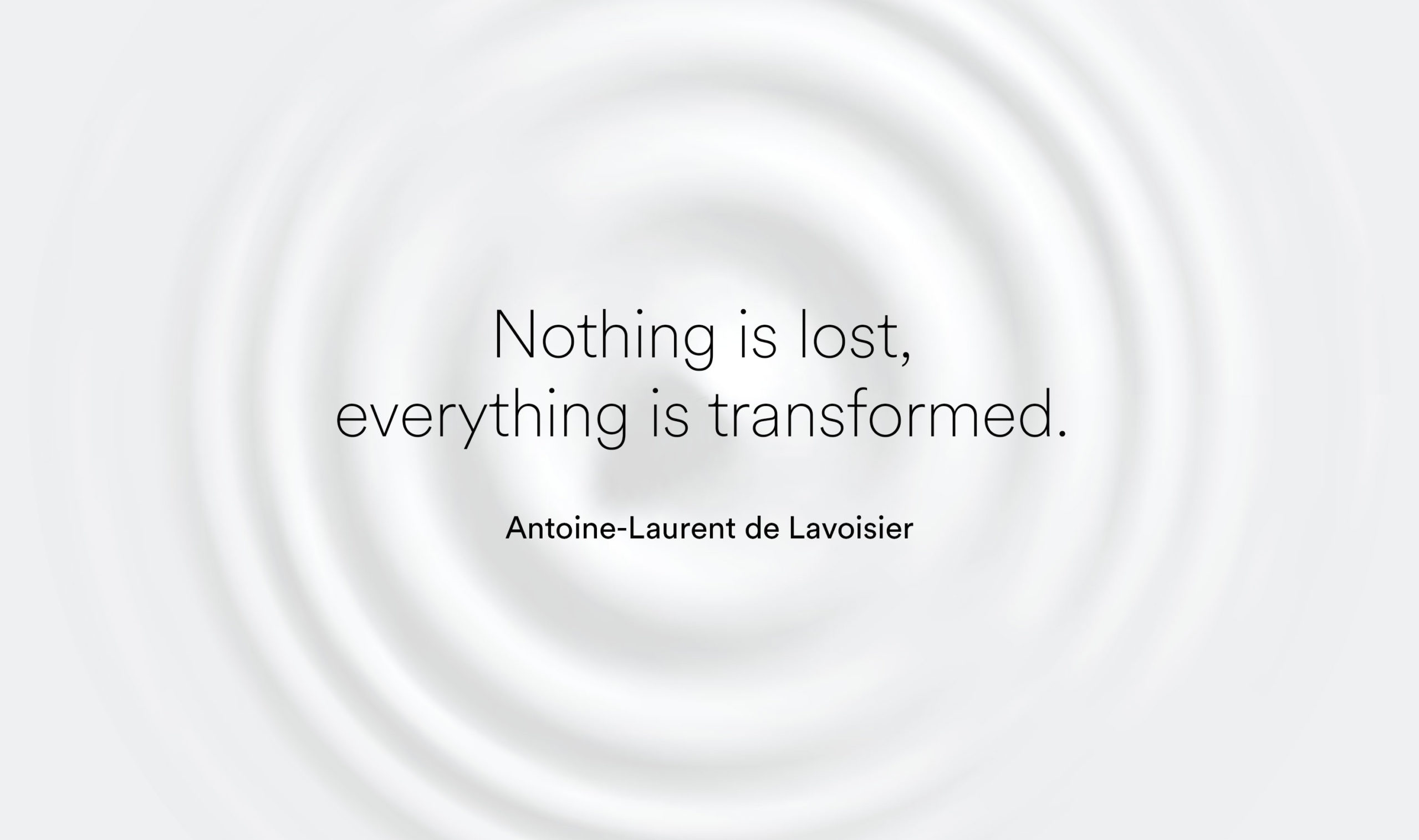
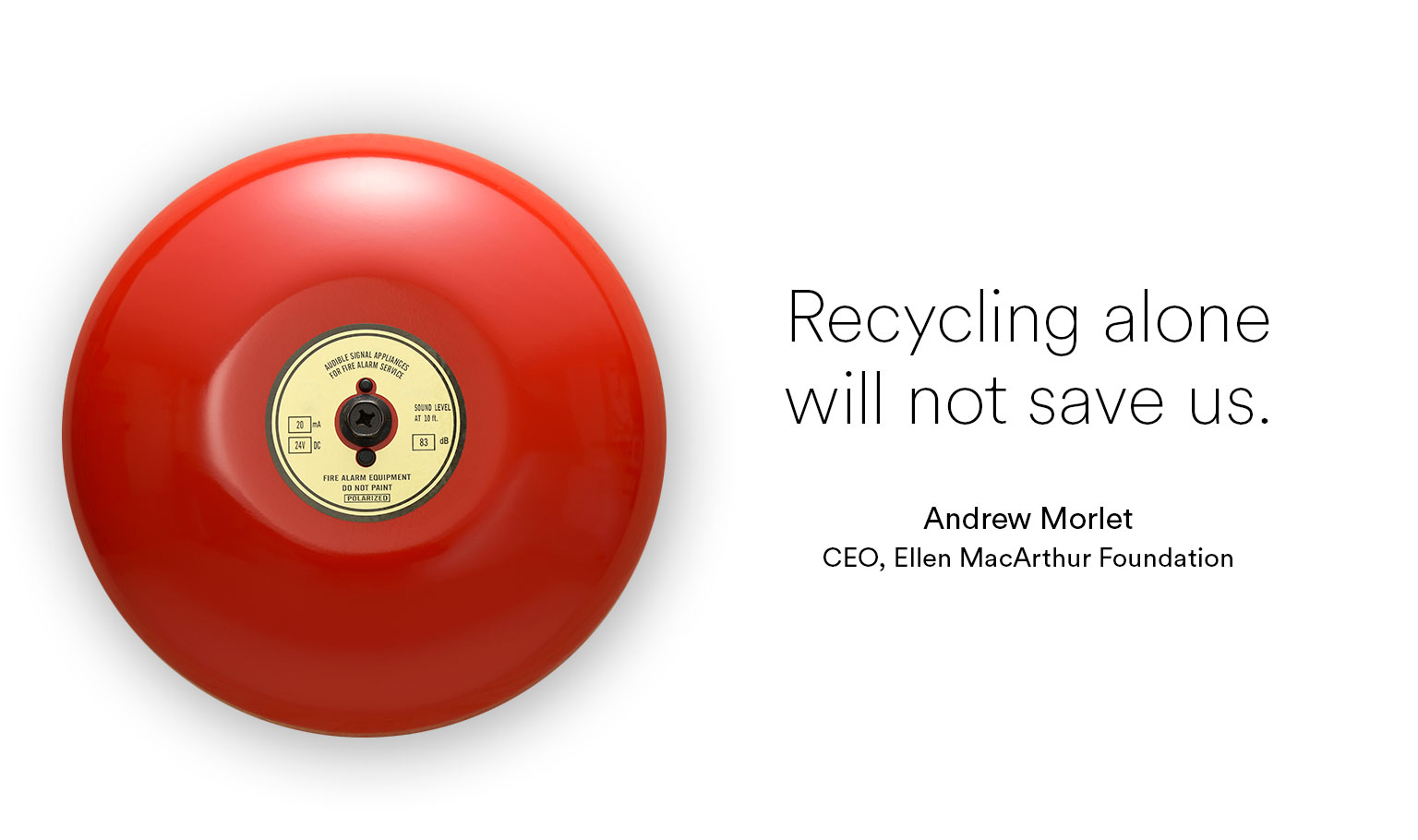

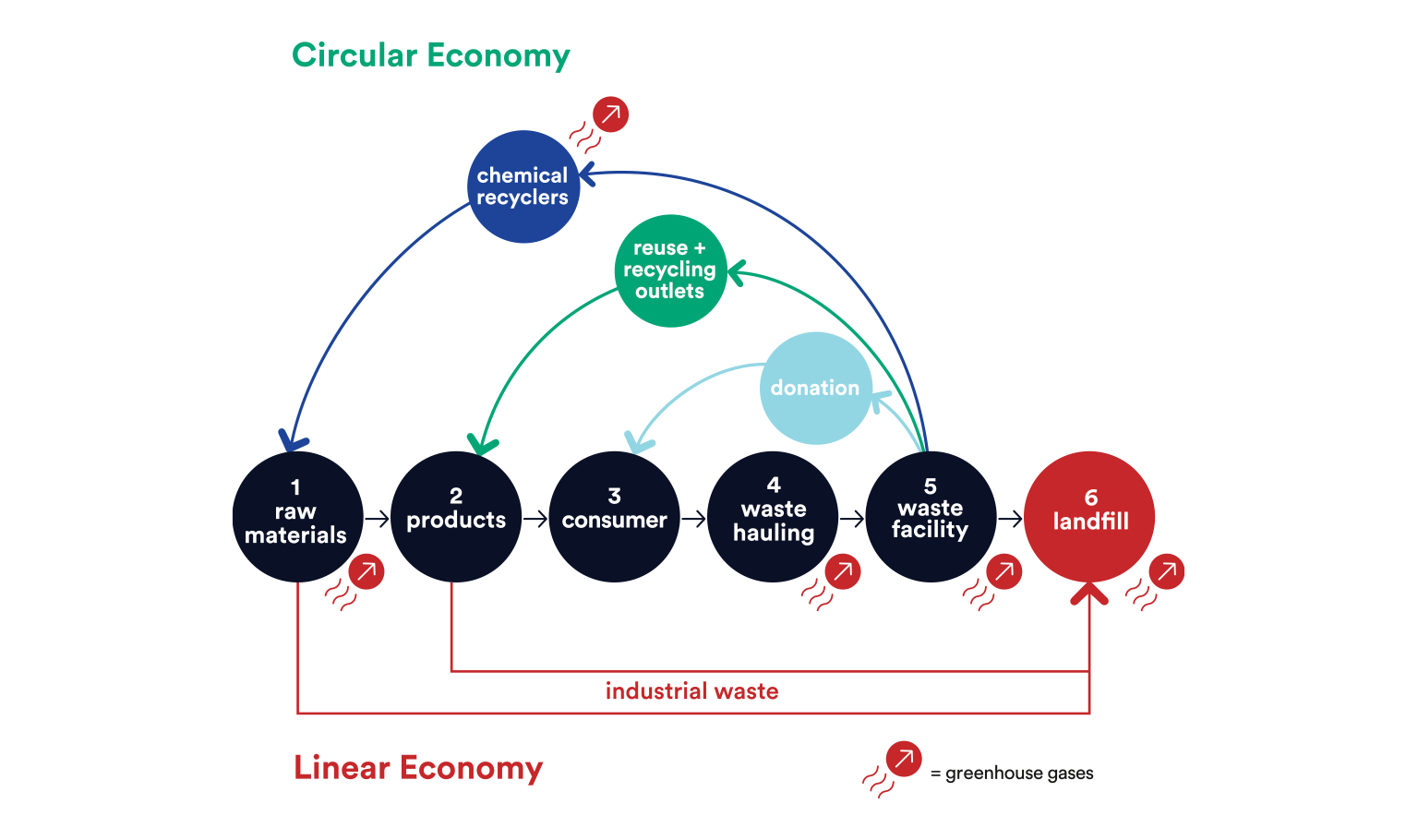

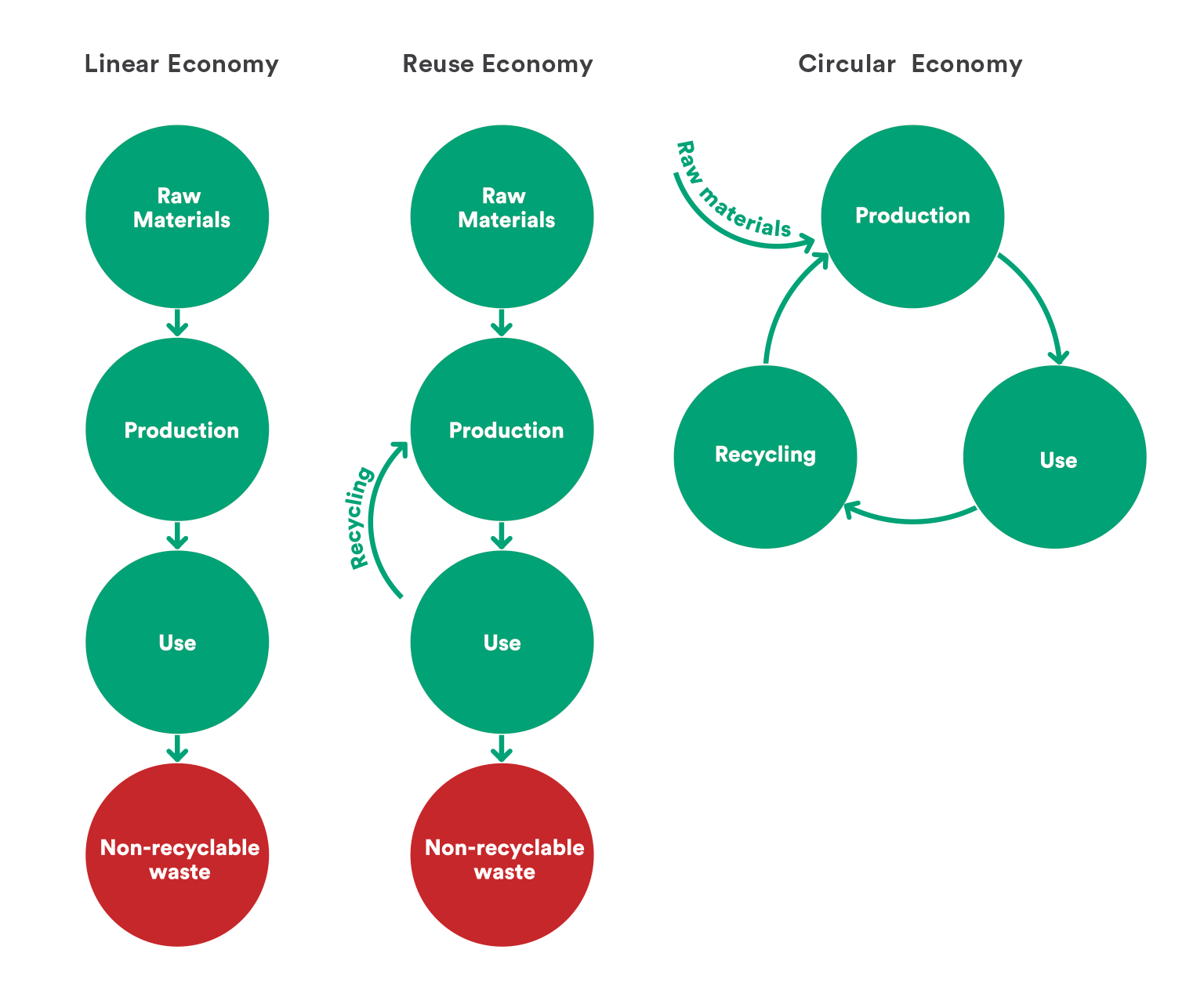

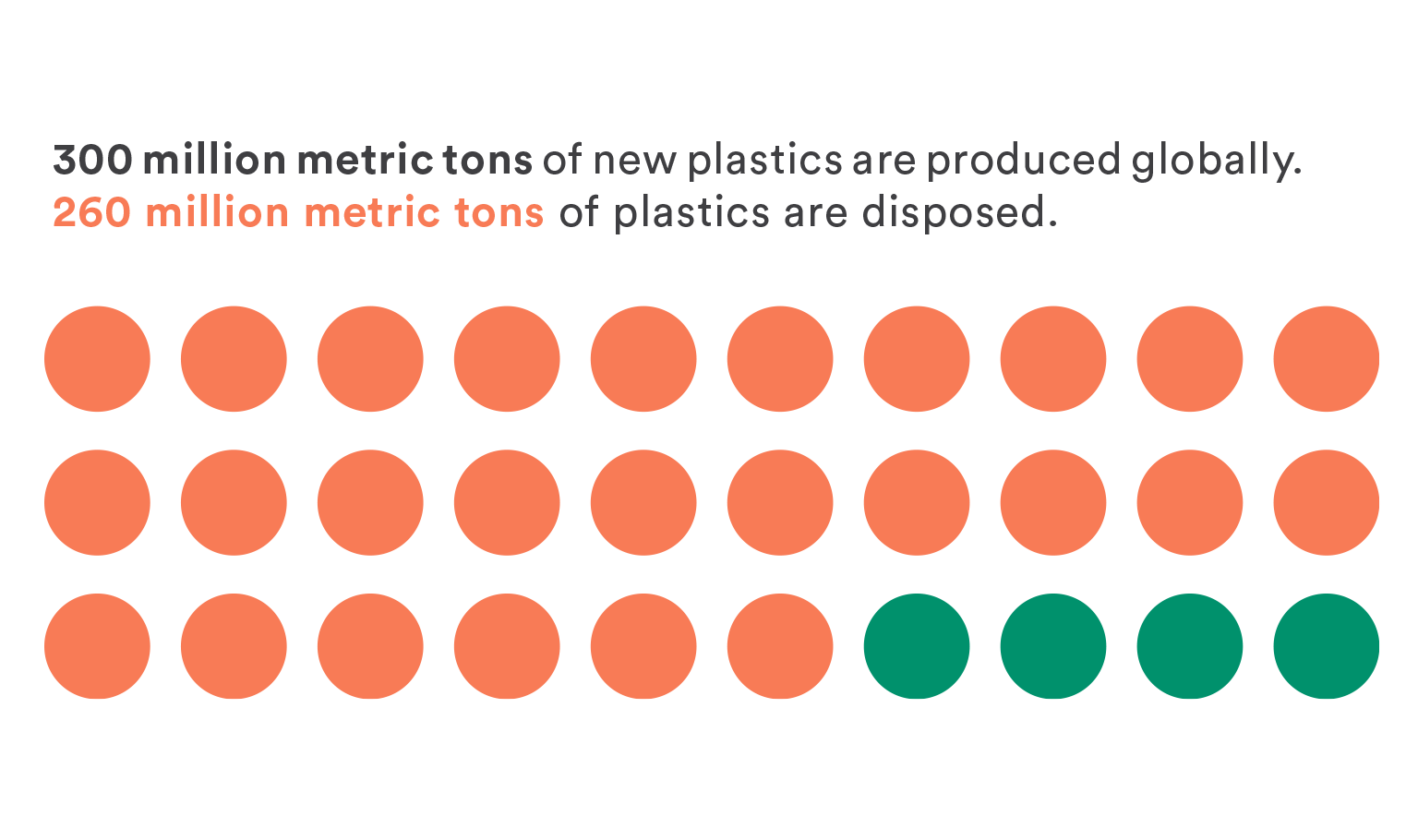 ¿Podría aprovecharse una cantidad mucho mayor de plásticos usados para fabricar nuevos materiales? Empresas como Eastman ya están trabajando
¿Podría aprovecharse una cantidad mucho mayor de plásticos usados para fabricar nuevos materiales? Empresas como Eastman ya están trabajando 



